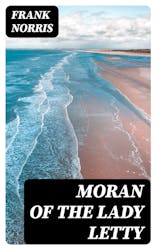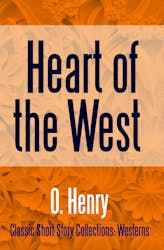A Deal in Wheat and Other Stories of the New and Old West is a collection of short stories written by the American author
Frank Norris. It was published posthumously in 1903 and composed primarily of recently published works.
I. The first of the five sections of the story, entitled "The Bear- Wheat at Sixty-Two", takes place in rural
Kansas.
Sam Lewiston leaves his wife, Emma, home on the ranch while he goes
into town one last time to try to sell his wheat to Bridges & Co.,
Grain Dealers before being forced out of the market. At sixty-two cents a
bushel, Lewiston can no longer afford to raise wheat and must take a
job with his wife’s brother in Chicago.
II. The next section, "The Bull- Wheat at a Dollar-Ten", introduces
the two main players of the Chicago-run wheat business, the bear and the
bull: Treslow and Hornung. When Treslow had let the price fall to
sixty-two cents, Hornung had almost run him out of business. Instead,
Mr. Gates makes a deal with Treslow, on behalf of Hornung, to sell him
one hundred thousand bushels for export at $1.10 each.
III. Hornung has grown to dominate wheat sales at $1.50 a bushel.
One day in "The Pit", a mysterious man named Kennedy sells one thousand
bushels to three of Hornung’s men: Going, Kimbark, and Merriam. They get
word that a total of twenty-five thousand bushels are being sold in
Chicago by someone other than Hornung. Hornung instructs them to
continue buying but, with The Bear supposedly out of the market, they do
not know who they are buying from.
IV. The fourth section, "The Belt Line", takes place in Hornung’s
home. His broker, Billy, and a detective named Cyrus Ryder are there to
discuss the now eighty thousand bushels he has purchased. Ryder reveals
that the bushels are the same ones that Treslow had purchased to export.
He had been shuttling them around the city on trains, making it appear
as if they had just arrived. Hornung laughs upon finding out he has been
cheated, and decides to further raise the price.
V. The final section of the story, "The Bread Line", describes Sam Lewiston’s life in Chicago. He stands in the
bread line
with many other poor, hungry workers who rely on the bakery’s nightly
giveaways, but the price of wheat has put too much of a strain on the
bakery. Lewiston manages to find work as a street cleaner and climb the
rankings to success but, because of his experiences as a farmer and a
worker, his resentment towards the operators of the wheat business will
not die.
Benjamin Franklin "Frank" Norris Jr. (March 5, 1870 – October 25, 1902) was an American journalist and sometime novelist during the
Progressive Era, whose fiction was predominantly in the
naturalist genre.
[1]
[2]
[3]
[4]
[5] His notable works include
McTeague (1899),
The Octopus: A Story of California (1901), and
The Pit
Norris's short story "A Deal in Wheat" (1903) and the novel
The Pit were the basis for the 1909
D.W. Griffith film
A Corner in Wheat.















